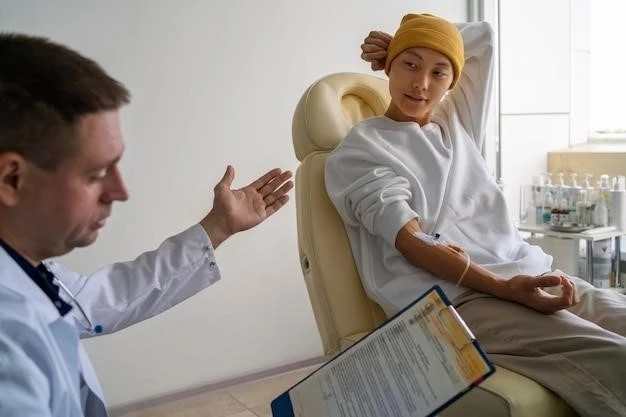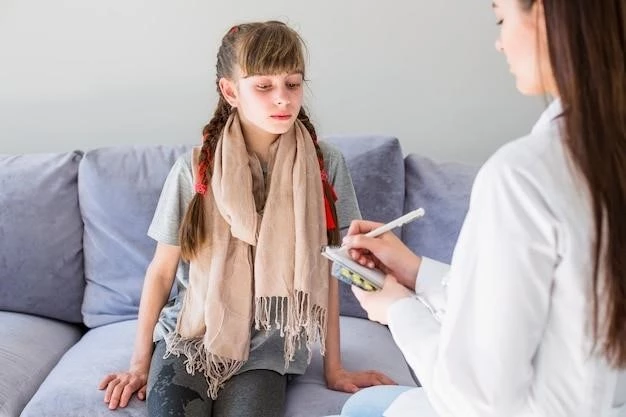Lurie–Kletsky Syndrome
When it comes to the rare genetic disorder Lurie–Kletsky syndrome‚ it’s crucial to understand its impact and how to provide medical management and supportive care. Learn about symptoms‚ physical manifestations‚ diagnosis‚ and the vital role of therapies like physical therapy‚ speech therapy‚ and occupational therapy.
Introduction
Welcome to the comprehensive guide on Lurie–Kletsky syndrome‚ a rare genetic disorder characterized by neurodevelopmental delay‚ intellectual disability‚ speech delay‚ learning difficulties‚ behavioral problems‚ muscle tone abnormalities‚ and distinctive facial features. As an inherited condition‚ understanding its symptoms‚ diagnosis‚ medical management‚ and supportive care is crucial for individuals‚ caregivers‚ and healthcare professionals. This syndrome poses unique challenges‚ but with the right approach‚ individuals can lead fulfilling lives. Explore the role of physical therapy‚ speech therapy‚ and occupational therapy in enhancing the quality of life for those with Lurie–Kletsky syndrome.
Overview of the Condition
Lurie–Kletsky syndrome is a rare genetic disorder known for neurodevelopmental delay‚ intellectual disability‚ speech delay‚ learning difficulties‚ behavioral problems‚ muscle tone abnormalities‚ and distinctive facial features. This inherited condition requires understanding and specialized care to address its complex nature. Individuals with the syndrome may benefit from medical management focusing on symptom relief and overall well-being. Genetic testing and thorough evaluations are essential for an accurate diagnosis. Through supportive care and a multidisciplinary approach involving physical therapy‚ speech therapy‚ and occupational therapy‚ individuals with Lurie–Kletsky syndrome can improve their quality of life and reach their full potential. Understanding the condition’s challenges and its impact on daily functioning is key to providing effective support and care.
Common Symptoms
Lurie–Kletsky syndrome presents a range of common symptoms that individuals may experience; These include neurodevelopmental delay‚ intellectual disability‚ speech delay‚ learning difficulties‚ behavioral problems‚ muscle tone abnormalities‚ and distinctive facial features. Recognizing these symptoms is crucial for early identification and intervention. Individuals with the syndrome may exhibit delays in reaching developmental milestones‚ challenges in communication and learning‚ as well as difficulties with motor skills and behavior regulation. Understanding these common symptoms is essential for healthcare providers‚ caregivers‚ and individuals with Lurie–Kletsky syndrome to provide targeted support and interventions to enhance overall well-being and quality of life.
Physical Manifestations
Lurie–Kletsky syndrome is characterized by various physical manifestations that individuals may exhibit. These can include muscle tone abnormalities‚ leading to challenges in movement and coordination. Additionally‚ individuals with the syndrome may have distinctive facial features‚ aiding in the clinical diagnosis of the condition. Understanding these physical manifestations is essential for healthcare providers to identify Lurie–Kletsky syndrome accurately. By recognizing these distinct physical characteristics‚ healthcare professionals can provide appropriate medical management and supportive care tailored to the individual’s needs. Addressing the physical manifestations of the syndrome through a multidisciplinary approach can significantly impact the individual’s overall functionality and quality of life.

Diagnosis
Diagnosing Lurie–Kletsky syndrome involves a comprehensive evaluation by healthcare professionals. The process typically includes genetic testing to identify specific gene mutations associated with the syndrome. Additionally‚ thorough clinical assessments are conducted to assess neurodevelopmental delay‚ intellectual disability‚ distinctive facial features‚ and other common symptoms. By combining genetic testing with a detailed clinical examination‚ healthcare providers can confirm a diagnosis of Lurie–Kletsky syndrome. Early and accurate diagnosis is essential for initiating appropriate medical management‚ supportive care‚ and therapies tailored to the individual’s needs. Collaborating with a multidisciplinary team can help ensure a comprehensive approach to addressing the challenges posed by this rare genetic disorder.
Medical Management
Effective medical management of Lurie–Kletsky syndrome involves addressing the specific symptoms and challenges associated with the condition. Healthcare providers may recommend medications to manage behavioral problems or specific symptoms like seizures‚ if present. Regular monitoring and follow-ups are essential to track the individual’s progress and adjust the treatment plan as needed. Additionally‚ genetic counseling can provide valuable information to individuals and families regarding the inheritance pattern of the syndrome and potential implications. Collaboration with specialists in neurology‚ genetics‚ and other relevant fields can help provide holistic care and support. It is crucial to work closely with healthcare providers to ensure a tailored medical management plan that addresses the unique needs of individuals with Lurie–Kletsky syndrome.
Supportive Care
Supportive care plays a crucial role in enhancing the quality of life for individuals with Lurie–Kletsky syndrome. This includes providing emotional support‚ educational resources‚ and access to community services. Caregivers and family members can offer a supportive environment that fosters growth and development. Additionally‚ creating a structured routine and incorporating activities that cater to the individual’s strengths can help optimize functioning. Regular communication with healthcare providers and participation in support groups can also be beneficial for both individuals with the syndrome and their caregivers. By establishing a supportive network and promoting a positive environment‚ individuals with Lurie–Kletsky syndrome can thrive and overcome challenges associated with this rare genetic disorder.
Role of Physical Therapy
Physical therapy plays a vital role in the management of Lurie–Kletsky syndrome by addressing muscle tone abnormalities‚ movement challenges‚ and coordination difficulties. A skilled physical therapist can design individualized exercise programs to improve strength‚ flexibility‚ and motor skills. Through targeted interventions and adaptive techniques‚ physical therapy aims to enhance mobility and overall physical function. Regular physical therapy sessions can help individuals with Lurie–Kletsky syndrome improve their motor skills‚ achieve greater independence in daily activities‚ and promote overall well-being. Collaborating with a physical therapist who specializes in developmental disorders can provide valuable support and guidance for individuals with this rare genetic condition.
Speech Therapy
Speech therapy plays a crucial role in the care of individuals with Lurie–Kletsky syndrome who experience speech delay and communication challenges. A speech-language pathologist can assess speech and language abilities‚ develop tailored therapy plans‚ and incorporate strategies to improve communication skills. Through various exercises‚ techniques‚ and augmentative communication devices‚ speech therapy aims to enhance speech clarity‚ language comprehension‚ and social communication skills. Regular speech therapy sessions can help individuals with Lurie–Kletsky syndrome communicate effectively‚ express their needs‚ and engage more fully in social interactions. Collaborating with a speech-language pathologist who specializes in developmental disorders can provide valuable support and resources for individuals with this rare genetic condition.
Occupational Therapy
Occupational therapy plays a vital role in supporting individuals with Lurie–Kletsky syndrome in developing essential life skills and fostering independence in daily activities. Occupational therapists work to address challenges related to fine motor skills‚ self-care abilities‚ and sensory processing issues. By creating customized intervention plans‚ occupational therapy aims to improve the individual’s ability to engage in self-care tasks‚ school activities‚ and play routines. Through sensory integration techniques‚ adaptive strategies‚ and environmental modifications‚ occupational therapy helps individuals with Lurie–Kletsky syndrome navigate daily challenges and achieve greater autonomy. Collaborating with an occupational therapist specializing in developmental disorders can provide valuable support and guidance for individuals with this rare genetic condition.
Long-Term Outlook
When considering the long-term outlook for individuals with Lurie–Kletsky syndrome‚ it’s essential to approach each person’s journey with understanding and support. While the syndrome presents unique challenges‚ early intervention‚ ongoing therapies‚ and a supportive environment can significantly improve outcomes. With dedication to medical management‚ consistent therapies like physical therapy‚ speech therapy‚ and occupational therapy‚ individuals with Lurie–Kletsky syndrome can make meaningful progress in their development and quality of life. Setting realistic goals‚ fostering independence‚ and embracing individual strengths are key to navigating the long-term impact of the syndrome. By focusing on holistic care and continued support‚ individuals with Lurie–Kletsky syndrome can lead fulfilling lives and overcome obstacles along their journey.
Conclusion
In conclusion‚ understanding and addressing the complexities of Lurie–Kletsky syndrome is crucial for individuals‚ caregivers‚ and healthcare providers. This rare genetic disorder‚ characterized by neurodevelopmental delay‚ intellectual disability‚ speech delay‚ and distinctive facial features‚ requires a multidisciplinary approach to management. By focusing on early diagnosis‚ tailored medical interventions‚ supportive care‚ and therapies like physical therapy‚ speech therapy‚ and occupational therapy‚ individuals with Lurie–Kletsky syndrome can achieve improved quality of life and functional outcomes. Embracing each individual’s unique strengths‚ fostering independence‚ and providing a nurturing environment are essential components of holistic care for those affected by this condition. By working together and advocating for comprehensive support‚ we can empower individuals with Lurie–Kletsky syndrome to reach their full potential and thrive despite the challenges they may face.
